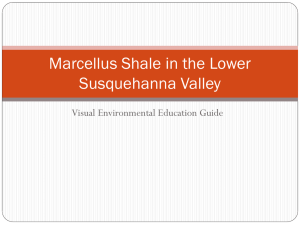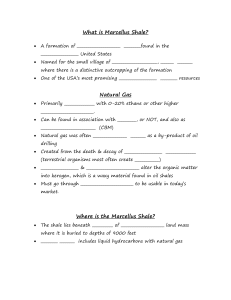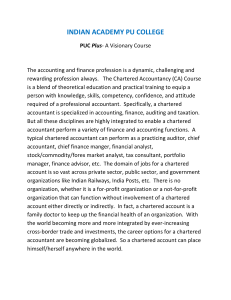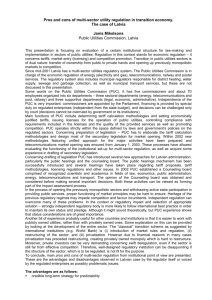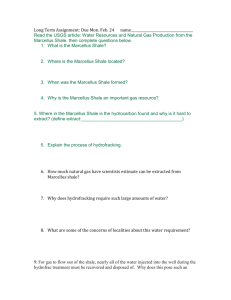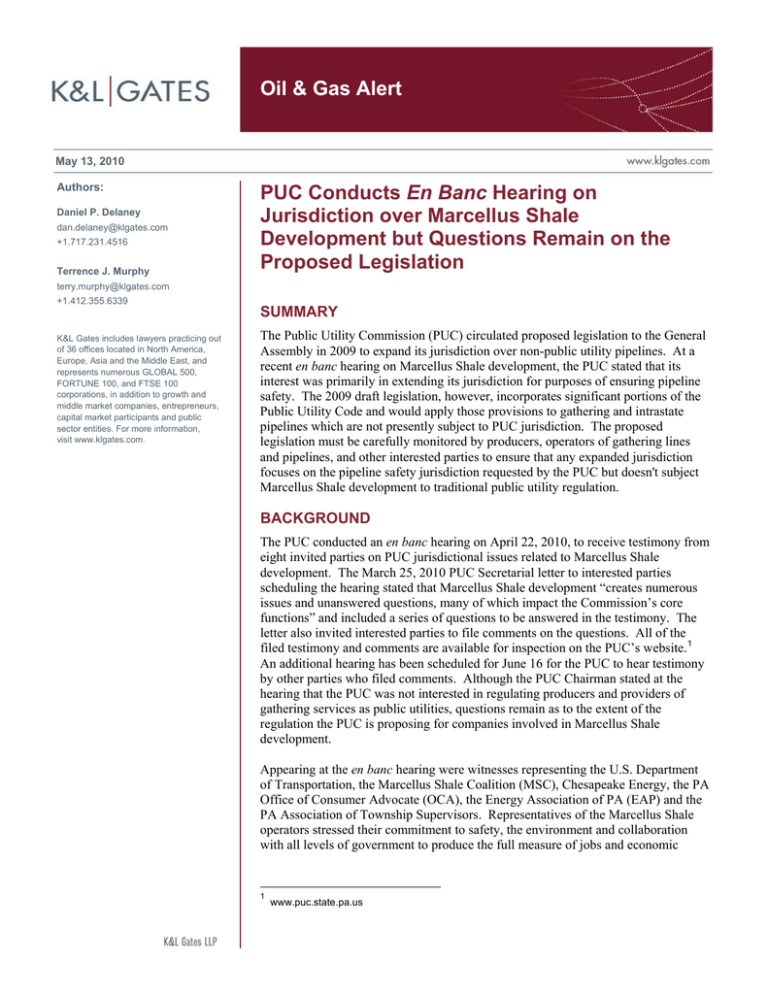
Oil & Gas Alert
May 13, 2010
Authors:
Daniel P. Delaney
dan.delaney@klgates.com
+1.717.231.4516
Terrence J. Murphy
PUC Conducts En Banc Hearing on
Jurisdiction over Marcellus Shale
Development but Questions Remain on the
Proposed Legislation
terry.murphy@klgates.com
+1.412.355.6339
SUMMARY
K&L Gates includes lawyers practicing out
of 36 offices located in North America,
Europe, Asia and the Middle East, and
represents numerous GLOBAL 500,
FORTUNE 100, and FTSE 100
corporations, in addition to growth and
middle market companies, entrepreneurs,
capital market participants and public
sector entities. For more information,
visit www.klgates.com.
The Public Utility Commission (PUC) circulated proposed legislation to the General
Assembly in 2009 to expand its jurisdiction over non-public utility pipelines. At a
recent en banc hearing on Marcellus Shale development, the PUC stated that its
interest was primarily in extending its jurisdiction for purposes of ensuring pipeline
safety. The 2009 draft legislation, however, incorporates significant portions of the
Public Utility Code and would apply those provisions to gathering and intrastate
pipelines which are not presently subject to PUC jurisdiction. The proposed
legislation must be carefully monitored by producers, operators of gathering lines
and pipelines, and other interested parties to ensure that any expanded jurisdiction
focuses on the pipeline safety jurisdiction requested by the PUC but doesn't subject
Marcellus Shale development to traditional public utility regulation.
BACKGROUND
The PUC conducted an en banc hearing on April 22, 2010, to receive testimony from
eight invited parties on PUC jurisdictional issues related to Marcellus Shale
development. The March 25, 2010 PUC Secretarial letter to interested parties
scheduling the hearing stated that Marcellus Shale development “creates numerous
issues and unanswered questions, many of which impact the Commission’s core
functions” and included a series of questions to be answered in the testimony. The
letter also invited interested parties to file comments on the questions. All of the
filed testimony and comments are available for inspection on the PUC’s website. 1
An additional hearing has been scheduled for June 16 for the PUC to hear testimony
by other parties who filed comments. Although the PUC Chairman stated at the
hearing that the PUC was not interested in regulating producers and providers of
gathering services as public utilities, questions remain as to the extent of the
regulation the PUC is proposing for companies involved in Marcellus Shale
development.
Appearing at the en banc hearing were witnesses representing the U.S. Department
of Transportation, the Marcellus Shale Coalition (MSC), Chesapeake Energy, the PA
Office of Consumer Advocate (OCA), the Energy Association of PA (EAP) and the
PA Association of Township Supervisors. Representatives of the Marcellus Shale
operators stressed their commitment to safety, the environment and collaboration
with all levels of government to produce the full measure of jobs and economic
1
www.puc.state.pa.us
Oil & Gas Alert
development for the Commonwealth.
All witnesses were unanimous in recognizing the
unique opportunity presented by Marcellus Shale
development. In their testimony, OCA suggested
there was an opportunity for enhanced gas price
stability for Pennsylvania gas customers through
greater use of local production in the gas supply
portfolio of natural gas distribution companies. Data
provided with the OCA testimony pointed to
significant reduction in carbon production when
using gas as the fuel source for electric generation.
Concern was expressed by OCA on water quality
issues related to Marcellus Shale development and
the possible impact on service provided by
Pennsylvania water utilities. The EAP expressed a
commitment on behalf of regulated natural gas
distribution companies to report annually to the PUC
on their efforts to secure additional Marcellus Shalebased gas supply, but requested that the PUC not
make this mandatory during annual least cost gas
procurement reviews. The EAP also expressed a
concern that existing Natural Gas Utilities could be
bypassed by new entrants designated by the PUC as
public utilities and the loss of customers could result
in stranded facilities costs for the bypassed utilities.
The Township Supervisors Association identified
road damage due to overweight and oversized
vehicles as its number one concern in areas of
Marcellus Shale development. The Supervisors
encouraged the PUC to be vigilant that motor
vehicle common carriers have PUC certificates and
be subject to PUC safety inspection. PUC Chairman
Cawley requested the MSC to discuss this issue with
members and push for compliance with PUC vehicle
certification and safety requirements.
At the conclusion of the hearing, Chairman Cawley
stated that the PUC is interested only in licensing
non-utility pipelines and does not want to regulate
them as public utilities. The PUC was interested in
safety inspections of pipelines, hearing and acting on
complaints and insuring service quality. The
Chairman disavowed any PUC interest in
establishing rates for services, terms and conditions
of contracts, conducting audits, financial regulations
or reviewing transactions with affiliates.
WHAT’S NEXT
Significant questions remain, however, as to the
extent of the regulation the PUC is proposing for
companies involved in Marcellus Shale
development. While the PUC Chairman’s remarks
suggest that the Commission is interested in a
limited range of issues, the proposed legislation
which the PUC drafted and circulated in 2009 was
significantly broader in scope. That draft bill would
authorize the agency to license owners and
operators of gathering lines and non-public utility
pipelines for the purpose of safety inspections,
consistent with guidelines of the U.S. Department of
Transportation’s Pipeline and Hazardous Material
Safety Administration. Notably, legislation to
increase fines for safety violations equal to federal
guidelines has already passed the Pennsylvania
House of Representatives. However, the PUC’s
2009 draft legislation also proposed to incorporate
seven chapters of the Public Utility Code (1, 3, 5, 7,
9, 15 and 33) which would authorize the PUC to
examine activities of the licensees beyond the
pipeline safety issues emphasized by the Chairman
at the en banc hearing. Questions on the quality of
service provided by gatherers and intrastate
pipelines would be subject to PUC jurisdiction
under the incorporated chapters. The PUC could
also consider complaints brought against the
licensed parties by customers or the PUC staff and
impose the same penalties it is authorized to impose
on public utilities. The 2009 draft legislation is
silent on how assessments would be calculated and
collected by the PUC. The legislation currently
incorporates by reference the existing PUC
assessment procedures in Chapter 5 of the Public
Utility Code (Section 510) which require the
disclosure of annual intrastate operating revenues
and the recovery of assessments that not only
include the cost of safety inspection, but also
contributions to the PUC's overhead for regulating
all utilities. Given the expansiveness of the 2009
draft, it is clear that the 2009 PUC legislative
proposal must be revised if it is to reflect the
agency's stated safety objectives and limited scope
of regulation explained at the en banc hearing.
There has been significant activity in the
Pennsylvania General Assembly by
environmentalists and those seeking expanded
regulation and taxation of operators in the
Pennsylvania Marcellus Shale. The Policy
Committees of the House and Senate caucuses have
been conducting hearings across the state,
examining the opportunity of Marcellus Shale
May 13, 2010
2
Oil & Gas Alert
development and appropriate regulatory balance.
Although the PUC has defined its future expanded
role as a safety agent, there may be pressure on
legislators to take a broader look at PUC jurisdiction
over Marcellus Shale development.
Anchorage Austin Beijing Berlin Boston Charlotte Chicago Dallas Dubai Fort Worth Frankfurt Harrisburg Hong Kong London
Los Angeles Miami Moscow Newark New York Orange County Palo Alto Paris Pittsburgh Portland Raleigh Research Triangle Park
San Diego San Francisco Seattle Shanghai Singapore Spokane/Coeur d’Alene Taipei Tokyo Warsaw
Washington, D.C.
K&L Gates includes lawyers practicing out of 36 offices located in North America, Europe, Asia and the Middle East, and represents numerous
GLOBAL 500, FORTUNE 100, and FTSE 100 corporations, in addition to growth and middle market companies, entrepreneurs, capital market
participants and public sector entities. For more information, visit www.klgates.com.
K&L Gates is comprised of multiple affiliated entities: a limited liability partnership with the full name K&L Gates LLP qualified in Delaware and
maintaining offices throughout the United States, in Berlin and Frankfurt, Germany, in Beijing (K&L Gates LLP Beijing Representative Office), in
Dubai, U.A.E., in Shanghai (K&L Gates LLP Shanghai Representative Office), in Tokyo, and in Singapore; a limited liability partnership (also named
K&L Gates LLP) incorporated in England and maintaining offices in London and Paris; a Taiwan general partnership (K&L Gates) maintaining an
office in Taipei; a Hong Kong general partnership (K&L Gates, Solicitors) maintaining an office in Hong Kong; a Polish limited partnership (K&L
Gates Jamka sp. k.) maintaining an office in Warsaw; and a Delaware limited liability company (K&L Gates Holdings, LLC) maintaining an office in
Moscow. K&L Gates maintains appropriate registrations in the jurisdictions in which its offices are located. A list of the partners or members in each
entity is available for inspection at any K&L Gates office.
This publication is for informational purposes and does not contain or convey legal advice. The information herein should not be used or relied upon
in regard to any particular facts or circumstances without first consulting a lawyer.
©2010 K&L Gates LLP. All Rights Reserved.
May 13, 2010
3


